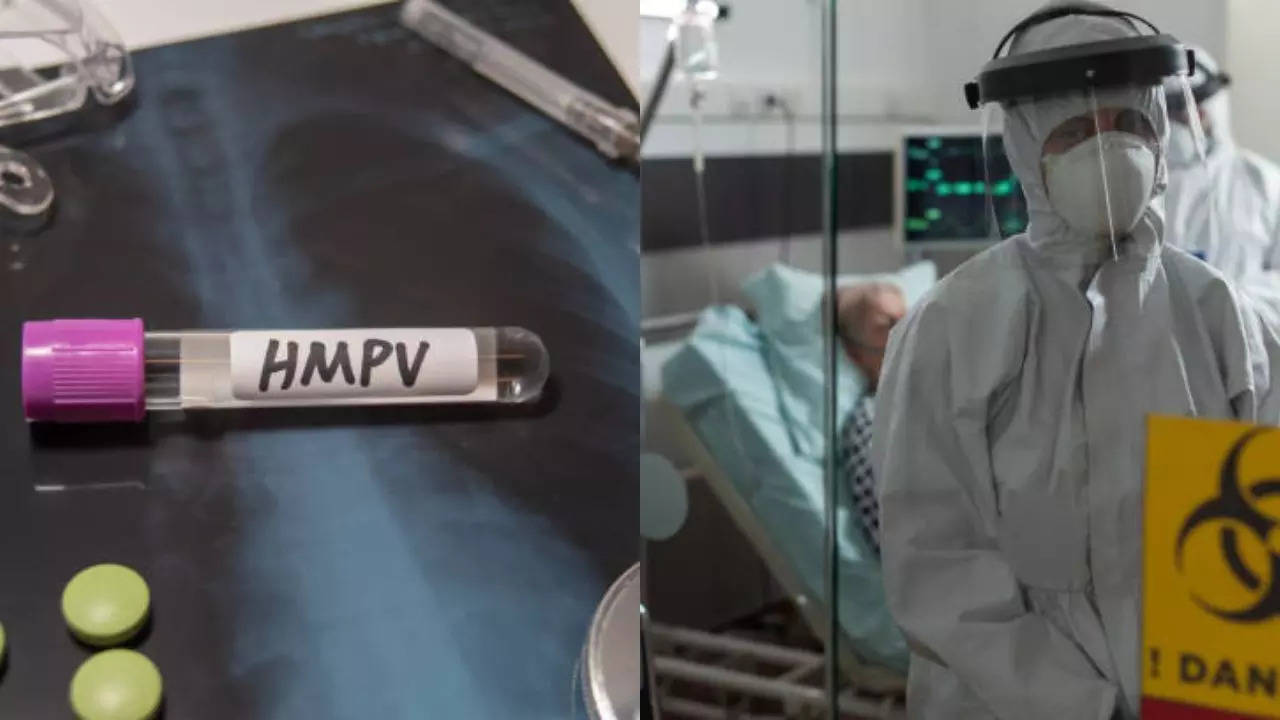Contents
-
news
-
Health
China downplayed the HMPV virus outbreak as a winter phenomenon; Why does it affect children and the elderly the most?
China HMPV Virus Outbreak News: China has passed off rising cases of human metapneumovirus or HMPV as a normal `winter phenomenon’, saying it does not pose a serious health concern like COVID-19 Is. While travelers internationally have been warned to reconsider travel to China for the time being, Beijing says it is just a respiratory infection that “peaks in the winter season.” Read on to know why young children and the elderly are most affected by HMPV.

Most people get HMPV before they are 5 years old, you can get HMPV again.
China HMPV Virus Outbreak News: While a number of photos and videos have emerged on social media showing people flooding China’s hospitals amid rising cases of human metapneumovirus, or HMPV—a respiratory disease with flu-like symptoms—Beijing has downplayed the situation. Given less importance.
While treating it as an annual winter phenomenon, China says it does not pose a serious health concern like COVID-19.
China’s Foreign Ministry spokesman Mao Ning said international reports have cautioned travelers to reconsider their travel plans to China for now, but Beijing says it is just a respiratory infection that “peaks during the winter season.” But it happens”. Mao said, “I can assure you that the Chinese government cares about the health of Chinese citizens and foreigners coming to China.” “It is safe to travel in China,” he said.
China says it is less severe this year
“The diseases appear to be less severe and spread on a smaller scale than last year,” Mao said, urging citizens and tourists to refer to guidelines issued by China’s National Disease Control and Prevention Administration.
For the past few days, there has been a Sudden increase in respiratory diseases Across China, especially in northern regions, people are experiencing a similar surge during COVID-19. Media in neighboring countries such as Indonesia, India and Japan also cautioned their citizens to be aware of the situation and take necessary precautions.
in hospitals China is overwhelmed with HMPV casesInfluenza A, Mycoplasma pneumoniae, and COVID-19.
Why does HMPV affect children and the elderly more?
According to experts, HMPV usually causes symptoms similar to the common cold. It often causes upper respiratory infections, but it sometimes causes lower respiratory infections such as pneumonia and asthma or forms chronic obstructive pulmonary disease (COPD), most people get hMPV before the age of 5. ; You can get hMPV again, but symptoms are usually mild after your first infection.
Doctors say HMPV often causes cold-like symptoms, but some people become very sick. You are more likely to become seriously ill the first time you get hMPV, which is why young children are at higher risk of severe illness. You get some immunity from your first infection and then if you get a second HMPV infection you are more likely to have mild, cold-like symptoms.
Adults over 65 and people with breathing problems or weakened immunity may also have severe symptoms.
According to statistics, about 10-12 percent of respiratory diseases in children are caused by HMPV. While most cases are mild, about 5-16 percent of children develop a lower respiratory tract infection such as pneumonia.
HMPV signs and symptoms,
Some signs and symptoms of human metapneumovirus include:
- cough
- Fever
- runny or stuffy nose
- sore throat
- wheezing
- breathlessness
- rashes all over your body
How is HMPV spread?
According to experts, HMPV is spread through direct contact with someone who has the virus or by touching things contaminated with the virus. For example, through:
- coughing and sneezing
- handshake, hug or kiss
- touching surfaces or objects such as phones, door handles, keyboards, or toys
Get the latest news live on Times Now with breaking news and top headlines from around the world.


